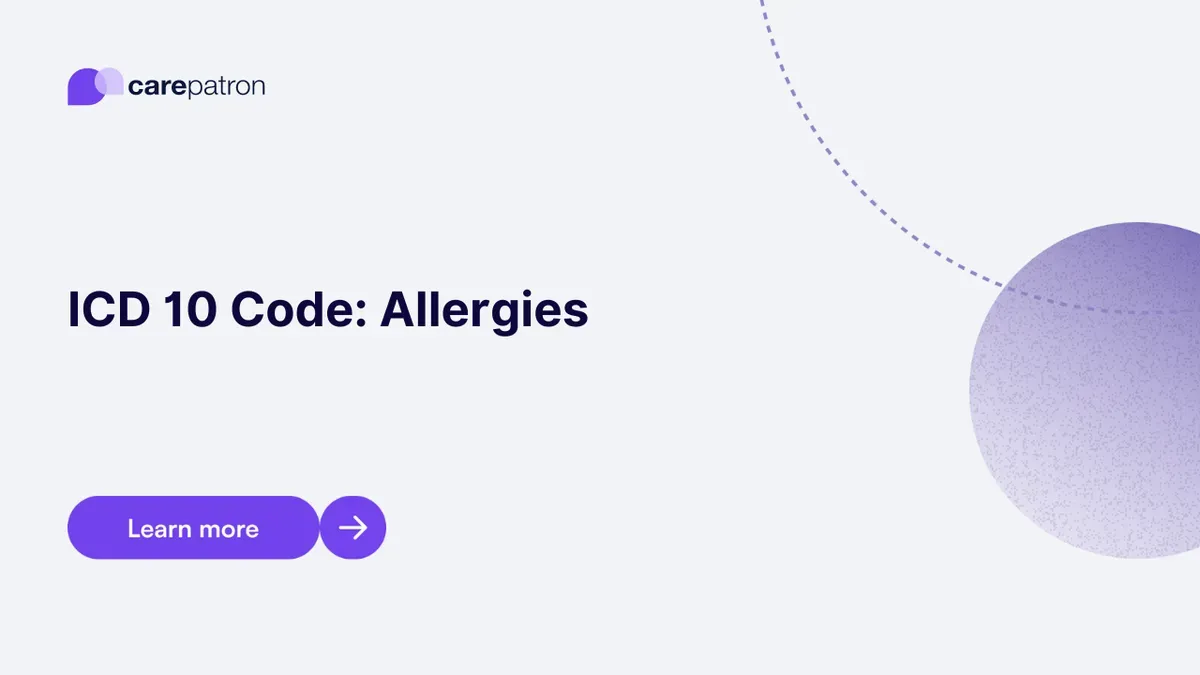
Allergies ICD-10-CM Code
Access the 2023 guide on Allergies to ICD-10-CM codes. Learn about the specific codes, clinical descriptions, and billing implications.
Use Code
Commonly asked questions
Common allergy triggers include pollen, dust mites, pet dander, certain foods, and insect stings.
Allergies are usually diagnosed through medical history, physical examination, and diagnostic tests like skin prick or blood tests for specific allergens.
Treatment options for allergies may include avoidance of known allergens, medications like antihistamines or corticosteroids, and allergen immunotherapy, commonly known as allergy shots.
EHR and practice management software
Get started for free
*No credit card required
Free
$0/usd
Unlimited clients
Telehealth
1GB of storage
Client portal text
Automated billing and online payments
